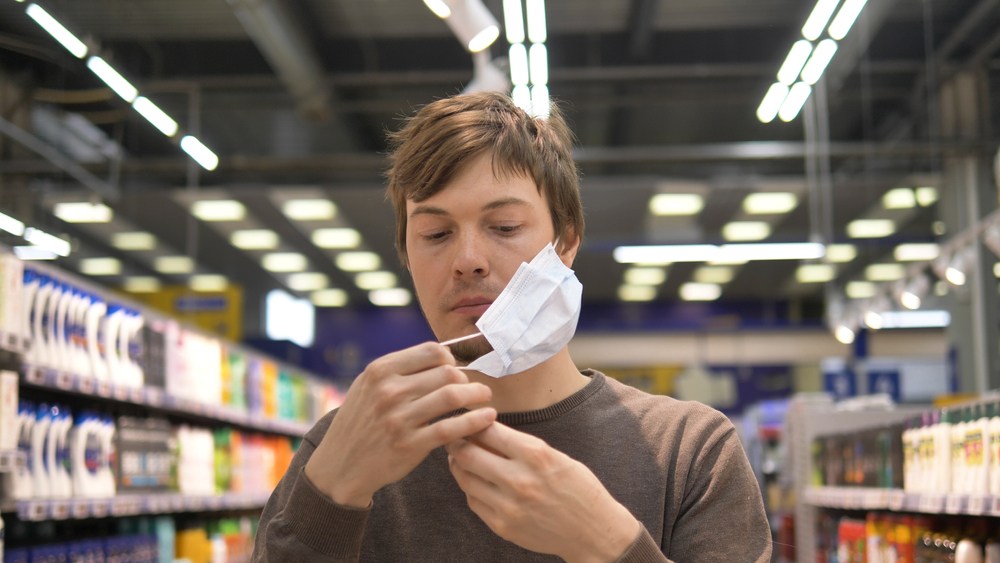What Are Superspreader Events? (And How You Could Attend One)

Today, we know more about the new SARS-CoV-2 virus than ever before. We have access to all protection equipment (face masks, sanitizers, gloves) and we know the social distancing rules.
And yet we’re hearing more and more often the term ‘superspreader event.’
What is a superspreader event?
A superspreader event happens when a single person infected with COVID-19 attends a meeting with multiple other people, causing a cluster of cases. So far, this type of events mostly happened during parties or casual meetings where people didn’t follow any public health safety rules.
For instance, the Centers for Disease Control and Prevention (CDC) reported a superspreader event in August. More precisely, the event was an overnight camp which led to hundreds of infected participants. In other words, such events can have very serious consequences for everyone involved.
Note that you don’t need to attend a large-scale event to be (or fall victim to) a superspreader. Even small family gatherings can have such tragic consequences. How?
It doesn’t matter how many people are there. What matters is how infectious a person’s case is.
Depending on the severity of the symptoms, some people can transmit the disease faster than others. For example, those who cough or sneeze often can infect others much easier than asymptomatic individuals.
The risk factors
Joshua LaBaer, PhD, COVID-19 researcher at the Arizona State University, explains that the less safety precautions people take, the more likely it is for an event to turn into a superspreader.
Past recordings prove that if there is an event with more than 30 participants, at least one of them will also receive the virus from the infected person.
Let’s say you went to a large event and later find out that one of the participants was infected with COVID-19 at that time. What do you do?
Well, the most responsible thing would be to take a test. As we already know, many people can carry the SARS-CoV-2 virus and never show any symptoms, so the only way to be certain is by testing.
How fast could you transmit the virus? Current research shows that it takes about 2 to 3 days since you’ve been exposed to the virus until you become infectious yourself. Although extensive studies need to be done in this area, the best option is to self-isolate until you are certain you don’t have the virus.
Furthermore, note that 40% of the COVID-19 spread is caused by people who have never developed any symptoms.

Why ‘COVID fatigue’ matters
Experts believe that the so-called ‘COVID fatigue’ plays an important part in the large numbers of superspreader events.
Taking all precaution measures to flatten the curve for this pandemic has definitely changed our lives. Social distancing, always sanitizing your hands, always wearing a mask can literally be tiring.
At some point, we all just want things to go back to the way they were before.
For some, the situation doesn’t seem as bad as it was at the beginning of the outbreak. Others may have just gotten so used to the terrible pandemic-related news they simply don’t care. These types of mindsets can accelerate the spreading of the virus, as people are giving up on following public health guidance from experts.
We all miss dinner with our loved ones. We all miss fun birthday parties and barbeques. But to make those things happen again, we have to stay strong right now and keep each other safe.
Best precaution measures
According to S. Wesley Long, PhD, researcher at Houston Methodist Hospital in Texas, the best way we can avoid superspreader events is to simply keep following the same guidelines as before:
- Always wear a mask when around other people
- Be careful what you touch and use sanitizer as often as possible
- Maintain the recommended physical distance between yourself and others
- Wash your hands as often as possible
If you do have to meet other people, make sure to keep the group as small as possible (experts recommend groups of maximum 10 people). Ideally, you should hold the meeting outdoors and maintain the recommended social distancing rules.
Regardless of the type of gathering, make sure you have everyone’s contact (name, phone number or email). Unfortunately, we can never know when something wrong happens and we must be able to let each other know if any of us becomes infected or shows unusual symptoms after the meeting.
If you’ve read all the way through here, congratulations! This means you’re a responsible person who cares about you and you loved ones’ health. I know our job isn’t easy, but it’s the only way we can make a better future.
Here at Wellness Captain we’re dedicated to helping you get through this difficult time easier. With that in mind, I’ll leave a few useful pandemic-related posts for you:
- Tired of COVID-19? Here’s How to Deal with Pandemic Fatigue
- ‘I have to go:’ How to Use Public Toilets During COVID-19
- 4 Ways to Maintain a Healthy Relationship This Pandemic
![]() What are you doing to cope with the pandemic right now? Share your daily habits in the comment section below and let’s help each other smile more today!
What are you doing to cope with the pandemic right now? Share your daily habits in the comment section below and let’s help each other smile more today!


